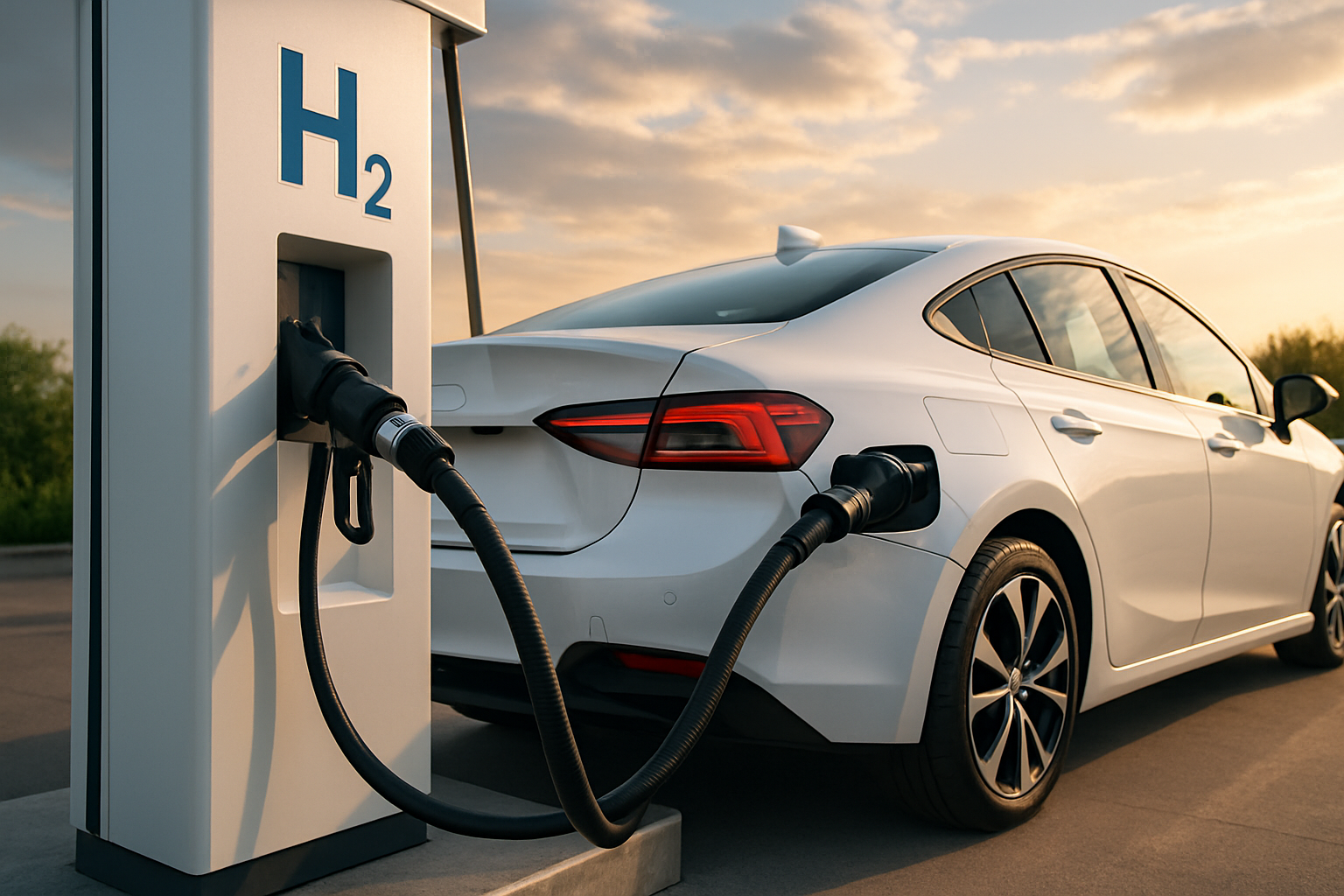Hydrogen Fuel Cells: The Unsung Heroes of Automotive Innovation
Imagine cruising down the highway in a sleek, powerful vehicle that emits nothing but water vapor. This isn't science fiction; it's the promise of hydrogen fuel cell technology. As the automotive world grapples with environmental concerns and the search for sustainable energy sources, hydrogen fuel cells emerge as a compelling, yet often overlooked, solution that could reshape our driving future.

From Space Race to Race Track
The concept of fuel cells dates back to the 1800s, but it wasn’t until the Space Race that the technology gained serious traction. NASA’s Gemini and Apollo missions utilized hydrogen fuel cells to power onboard systems, proving their reliability in the most extreme conditions. This space-age technology has since found its way into terrestrial applications, with automotive manufacturers recognizing its potential to revolutionize transportation.
The Refueling Revolution
One of the most significant advantages of hydrogen fuel cell vehicles is their refueling speed. While battery electric vehicles can take hours to charge, a hydrogen fuel cell car can be refueled in minutes, mirroring the convenience of traditional gasoline vehicles. This rapid refueling capability addresses one of the primary concerns consumers have with alternative fuel vehicles – range anxiety and long charging times.
Infrastructure: The Missing Link
Despite the promising technology, the widespread adoption of hydrogen fuel cell vehicles faces a significant hurdle – infrastructure. The lack of hydrogen refueling stations remains a critical obstacle. However, several countries, including Japan, Germany, and parts of the United States, are investing heavily in hydrogen infrastructure. As these networks expand, the practicality of hydrogen fuel cell vehicles for everyday use increases, potentially catalyzing a shift in consumer preferences.
Performance Without Compromise
Contrary to popular belief, hydrogen fuel cell vehicles don’t sacrifice performance for eco-friendliness. These vehicles offer impressive acceleration, thanks to the instant torque provided by electric motors. Moreover, the power density of hydrogen fuel cells allows for longer ranges compared to many battery electric vehicles, making them particularly suitable for long-distance travel and heavy-duty applications like trucks and buses.
The Synergy with Renewable Energy
One of the most exciting aspects of hydrogen fuel cell technology is its potential synergy with renewable energy sources. Excess electricity from wind or solar farms can be used to produce hydrogen through electrolysis, effectively storing renewable energy in a form that can be easily transported and used in vehicles. This integration could lead to a truly sustainable transportation ecosystem, where vehicles not only run clean but are powered by clean energy from the start.
Challenges on the Horizon
While the potential of hydrogen fuel cells is immense, several challenges remain. The production of hydrogen itself can be energy-intensive, and ensuring that this process is environmentally friendly is crucial. Additionally, the cost of fuel cell systems and hydrogen storage technologies needs to decrease to make these vehicles more accessible to the average consumer. However, as with any emerging technology, economies of scale and continued research are expected to address these issues over time.
A Diverse Future for Automotive Propulsion
The future of automotive propulsion is likely to be diverse, with different technologies suiting different needs. Hydrogen fuel cells may find their niche in long-distance travel, heavy-duty vehicles, and regions with abundant renewable energy resources. As the automotive industry continues to evolve, hydrogen fuel cells stand as a testament to human ingenuity and the ongoing quest for cleaner, more efficient transportation solutions.
In conclusion, hydrogen fuel cell technology represents a fascinating frontier in automotive innovation. Its potential to offer clean, efficient, and high-performance transportation makes it a compelling option for the future of mobility. As infrastructure develops and technology advances, we may well see hydrogen-powered vehicles becoming an increasingly common sight on our roads, silently revolutionizing the way we think about automotive power and environmental responsibility.






